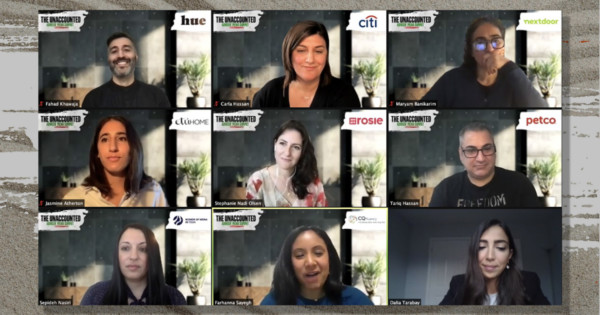
When it comes to representation, people of Middle Eastern and North African (MENA) descent have long faced a particular barrier: the lack of a box to check on official forms, including the U.S. Census. Instead of a distinct category, Americans who identify as MENA are instructed to check the box for “white”—whether or not that reflects their concept of identity or personal experience of the world, and despite the systemic barriers and discrimination they often face.
The Census is notoriously imprecise in its handling of racial identities, also grouping together all Indigenous peoples with roots in North, Central and South America under one label, for example. But for those of MENA descent, the way that lack of acknowledgement expands beyond the Census can begin to feel like an attempt at cultural erasure and forced assimilation. It also makes it difficult to identify and organize communities in solidarity against a shared experience of racism and systemic barriers—especially following the surge of anti-Muslim and anti-Arab sentiment following 9/11.
At Adweek’s MENA summit today, titled The Unaccounted, nine industry professionals of MENA descent came together to discuss their experiences. The resulting conversation was a celebration of heritage and culture, as well as an insightful discussion around systemic discrimination and racism. Participants shared how they’ve grappled with the tension between the pressure to assimilate and a strong sense of cultural pride, and how they, as successful leaders, can make space for more people of MENA descent to rise to leadership roles without compromising the way they portray and share their heritage.
The panel, moderated by Hue co-founder Fahad Khawaja, included:
- Jasmine Atherton, vice president of marketing at étuHome
- Maryam Banikarim, head of marketing at Nextdoor
- Carla Hassan, chief marketing officer at Citi
- Tariq Hassan, chief marketing officer at Petco
- Stephanie Nadi Olson, founder of We Are Rosie
- Sepideh Nasiri, founder and chief executive officer of Women of MENA in Tech
- Farhanna Sayegh, multicultural marketing director at CQ Fluency
- Dalia Tarabay, global business lead at Google
Khawaja kicked off the event by asking panelists how they’re leading their companies through this moment, during a year that’s seen the coronavirus pandemic upend plans, workflows and business models in ways that no one could have expected.
Carla Hassan spoke to the ways that her experience growing up as an immigrant and person of color has given her a greater capacity for empathy in leadership. “You know how it feels when people don’t know who you really are,” she said. “When you already are the ‘other,’” she explained, understanding where other people are coming from can come more naturally. “You can help solve problems with [those you lead]—their own personal problems, from a management perspective—and even broader business problems.”
But for many of the panelists, coming to a place of acceptance and confidence regarding their heritage and identity in the workplace was a complicated journey. Banikarim described becoming an expert chameleon as a junior high school student, playing down her heritage and culture in order to better fit in with her peers and try to avoid discrimination.
It wasn’t until more recently, when she had earned a platform as a result of her career, that Banikarim began to “wear my identity boldly,” she explained. Following President Donald Trump’s 2017 executive order banning travel from seven majority Muslim countries, she said that being more vocal and open about her own experiences suddenly felt more pressing.
Nadi Olson echoed the sentiment. “Being Palestinian is offensive to people—just our sheer existence is offensive,” she said. “I was taught at a very young age to keep that to yourself, just try to conform.” But that’s changed for her more recently.
https://www.adweek.com/retail/mena-leaders-more-nuanced-view-diversity-inclusion/

